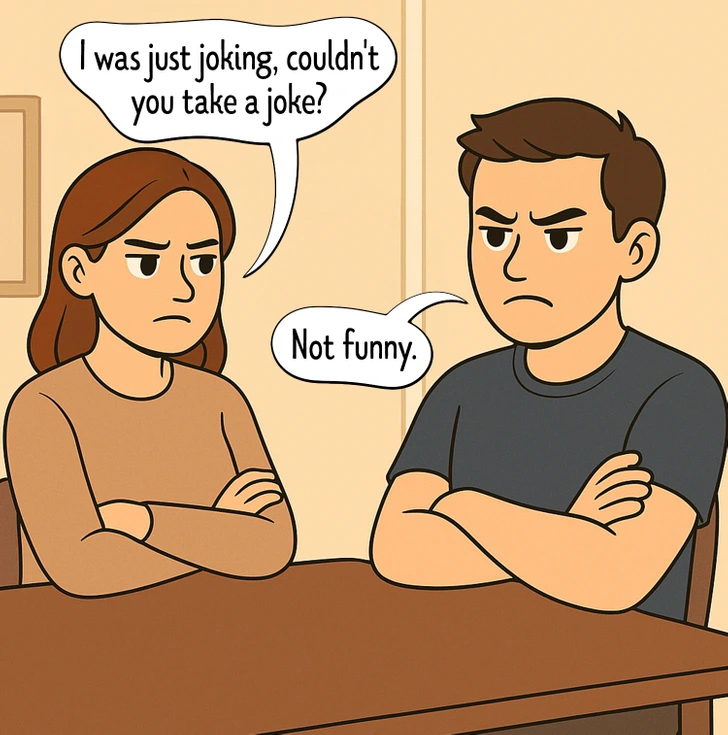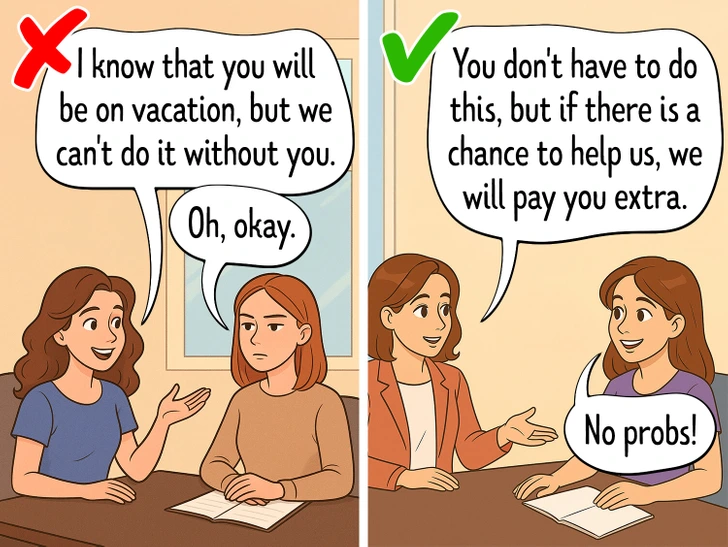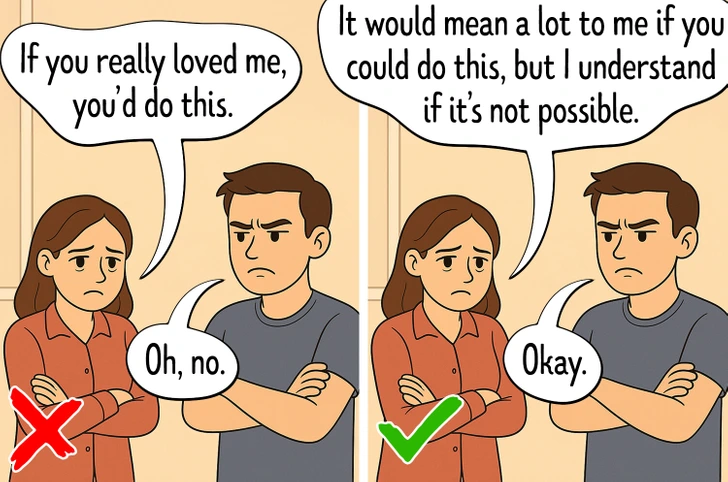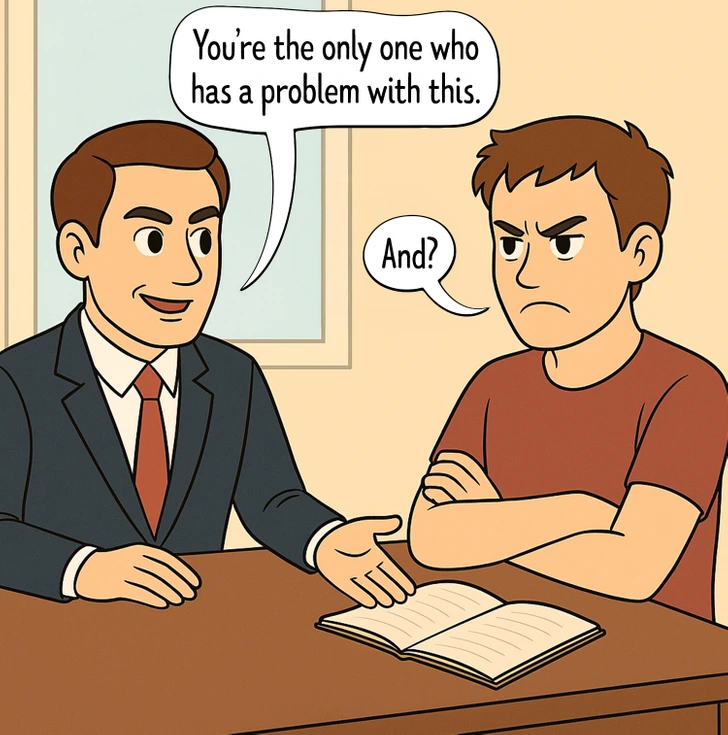You ever say something and immediately feel the room shift? A quick comment meant as a joke or a casual remark can land like a punch, even if you didn’t mean it that way. That’s the tricky thing about language—sometimes the most harmful things we say are the ones we barely notice. They sneak into our conversations, dressed up as humor, concern, or even love.
Let’s break down six common phrases that can come off toxic, even when they don’t sound harsh at first. And hey, don’t beat yourself up if you’ve said some of these—we all have. What matters is what we choose to say next.
“You’re surprisingly good at this… for a woman”

This one might seem like a compliment at first glance. But let’s be real—it carries an outdated assumption that women shouldn’t excel in certain areas. It’s like handing someone a trophy and then saying, “I didn’t think you had it in you.”
It reinforces gender stereotypes instead of celebrating skill. A better option? Keep it simple and bias-free: “You absolutely nailed that presentation,” or “You’ve got serious talent.” Let the compliment stand on its own without any unnecessary qualifiers.
Video: 4 SIGNS THAT YOU HAVE BEEN MENTALLY ABUSED!
“Don’t be so sensitive”

Oof. That one hits hard, doesn’t it? It’s the emotional version of brushing someone’s feelings under the rug. Telling someone they’re “too sensitive” basically says, “Your reaction is the problem, not what I said.”
Instead, try a little curiosity. “I didn’t realize that bothered you—can we talk about it?” opens the door to connection. It shifts the focus from shutting someone down to hearing them out. Isn’t that what we all want, anyway?
“I was just joking. Can’t you take a joke?”

Ah yes, the classic gaslight-and-deflect combo. This phrase tends to pop up right after a rude or hurtful comment—disguised as humor. It flips the blame, making the other person feel like the problem for not laughing along.
Here’s a better move: own your words. “I didn’t mean to upset you—sorry if it came across wrong.” That’s all it takes. It doesn’t weaken your position—it strengthens your empathy. Humor is great, but not when it leaves someone else carrying the sting.
“I know you’re on vacation, but we really need you”

Translation: “Your time off isn’t actually yours.” This phrase might come from panic or poor planning, but it puts pressure on someone who’s trying to rest. And let’s be honest, vacation guilt is real enough without adding a guilt trip on top.
A healthier alternative might sound like: “No pressure at all—we know you’re on a break. If by any chance you’re available, we’re happy to offer some extra pay.” Respect boundaries, and people are more likely to step up willingly (and without resentment).
“If you really loved me, you’d do this”

This one’s a red flag waving wildly in emotional manipulation territory. It turns love into a bargaining chip, making someone feel guilty for setting boundaries or saying no.
Let’s flip the script. Instead of guilt-tripping someone, be honest about your feelings. “It would mean a lot to me if you could do this—but I totally understand if it’s not possible.” That leaves room for love, choice, and respect—all things relationships need to breathe.
“You’re the only one who has a problem with this”

This phrase is a sneaky way of isolating someone and invalidating their experience. It says, “You’re overreacting,” without using those exact words. It makes people feel like their perspective doesn’t matter.
Try switching gears. “I can see this is bothering you—let’s figure out why and how we can fix it.” That creates space for dialogue instead of defensiveness. Because just because others don’t see it doesn’t mean the pain isn’t real.
Why These Words Matter More Than We Think
Video: 12 toxic things you do in conversations without realising
Language shapes our relationships. It’s not just what we say—it’s how we make people feel. The wrong phrase, even said with good intentions, can leave someone doubting themselves, shutting down, or carrying quiet resentment. That’s not what any of us want, right?
It’s not about being perfect with your words every single time. Nobody is. It’s about being willing to pause, check yourself, and try a little harder next time. The good news? Every conversation is a new chance to get it right.
Conclusion: Let’s Talk Smarter, Kinder, and More Thoughtfully
Toxic phrases don’t have to be loud or cruel to do damage. Sometimes they slip into our speech patterns without us even noticing. But once we become aware, we get to choose differently. A few swapped words can turn disconnection into empathy, pressure into respect, and conflict into clarity.
So here’s to catching ourselves in the moment. To saying “I’m sorry” when it counts. And to replacing old habits with better ones—not because we have to, but because we care. Words are powerful. Let’s use them to lift each other up.


